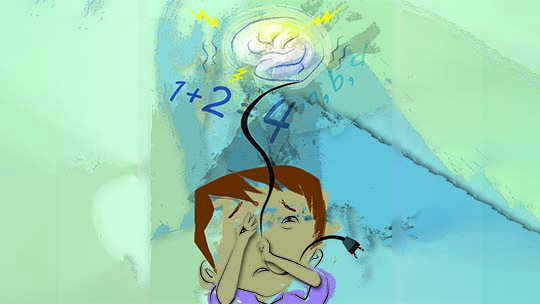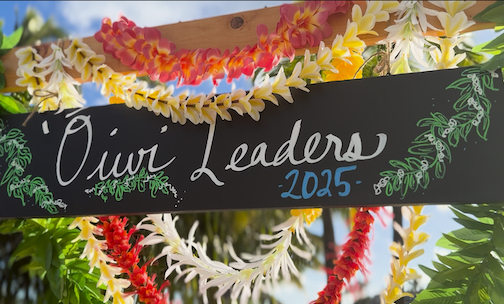The word concussion comes from the Latin word concutere, meaning to shake violently. But it doesn’t always take a major accident to cause one. Even minor hits, like getting elbowed during a basketball game, can lead to a concussion.
Normally, the brain is cushioned by fluid and protected by the skull. But when there’s an impact like falling off a bike or bumping heads during a game, the brain can hit the inside of the skull. This can lead to a disruption in brain chemistry due to the interruption of normal brain cell function, causing neurotransmitter surges, ion imbalances, and inflammation.
Jennifer King, D.O., the chief of pediatric sports medicine for Hawaii Pacific Health and a medical consultant for the Hawaii Concussion Awareness Management Program, explains that a concussion isn’t like a broken bone, so it won’t show up on an X-ray. The symptoms also depend on which part of the brain is affected, but common signs include dizziness, headaches, confusion, and blurred vision.

Why are concussions worse for kids?
- Growing brain: A child’s brain is still developing, making it more sensitive to injury. A concussion can interfere with their learning, memory, or emotional development.
- Weaker necks: Kids have weaker neck muscles, which means their heads are less stable during contact. This makes it easier for their brains to move around inside the skull, increasing the chance of injury.
- Being a “team player”: Kids might be hesitant to sit out of games because they don’t want to let their team down. But it’s important to remind them that being a good teammate means looking out for their own health, too. Playing while injured can hurt the whole team in the long run, and taking time to recover properly helps everyone stay safe.
- Harder to explain: Younger kids may not know how to explain how they’re feeling. They might not tell you they feel “foggy” or “off,” which can make it harder to spot the problem.
- Second impact syndrome: This rare but severe condition occurs if a child sustains another concussion before fully recovering from the first. If they experience a second blow, it can cause rapid brain swelling that can lead to severe long-term damage or even death.
- Impact on academic and social development: A concussion can make it harder for a child to focus, remember things, and control their emotions. If a child keeps getting concussions, these problems can build up and lead to long-term struggles.
Prevention and recovery
The best way to deal with concussions is to prevent them in the first place. Ensure that adults create safe environments for kids for play and sports. While helmets will not prevent concussions, they will prevent skull fractures and bleeding in the brain. Teach kids to tell someone if they hit their head. If a concussion is suspected, getting medical attention, a little bit of rest, and getting back to a regular schedule are very important.
A concussion might not seem serious at first, but it is. Taking it seriously and giving the brain time to heal is the best way to make sure kids recover fully and stay healthy for the long run.
Check out this video where Dr. King discusses concussions, what to look out for, and how to prevent them:
Original illustrations by Garry Ono
Learn more
Looking for more articles about keeping kids healthy and safe? Check out these articles:
- 5 exercises for your keiki
- bonding keiki to the kai
- building resilience in young people
- children’s health month: keeping keiki healthy
- dental tips for keiki at every age
- digital safety for our keiki
- find your flock and strike a pose with three little ducks
- the power of physical fitness
- water safety tips to keep you and your keiki safe
SP25F




